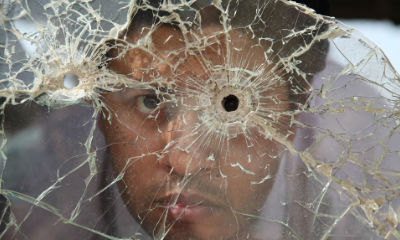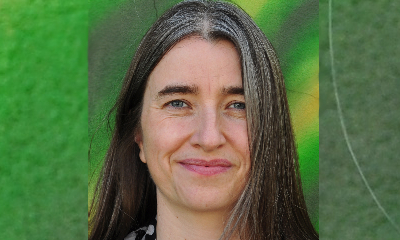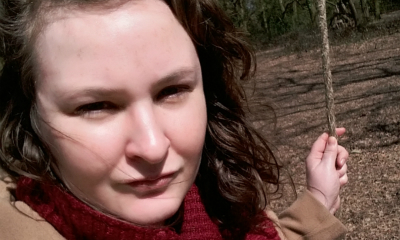
The conversations that take place between an author and their translator are famous among us translators. They are illuminating for the translator, often revealing much more than anticipated about both the text and the author, or darting off along unexpected paths. Even at their most basic, these conversations allow the translated text a level of closeness to their original hard to achieve elsewise: I consider them an essential translation tool.
This communication between the author and translator of a text can end up forming the basis of a deep friendship between the two writers, or indeed can lead one or both parties swearing never to collaborate again. How disappointing it is, for example, to check an obscure word or opaque image with the original author and uncover the depth of their homophobia . . . or to work with an author who cannot handle their translator spotting factual errors in their historical fiction. But how delightful to find a kindred spirit, learn their voice, and recreate their work in one’s own language, with their input.
Preparing ‘literal’ English drafts of Arabic poems ahead of the PTC workshops at Torquay International Agatha Christie Festival this month ready for poet Emily Hasler and the workshop participants to develop, my questions to the three authors were few, and fairly straight forward. Did the poet mean to suggest a clove or a carnation (the same word in Arabic) in this instance? Was nosebag a normal word for a soldier’s knapsack, in Egypt? The authors’ replies were prompt and clear, and the literals took shape. So long as I understood all of the words and phrases myself, I would be able to explain them to Emily and whoever showed up for the workshop, I hoped, giving the poems their best chance at surviving the rough crossing into English.
And then I began work on Kadhem Khanjar’s harrowing poem ‘Breaking News: Mass Grave Discovered Nearby’. I don’t know Khadhem personally, but had enjoyed talking to him over email for this PTC project after a mutual friend, the poet Dunya Mikhail, had put us in touch. He had sent his biography over, and I’d been impressed by his artist-activist approach to poetry performance in Iraq, and by his cheerful humorous manner. The prose poem about the mass grave had of course hit me hard on first reading, but I had not been reading its narrator as the poet himself: experience has taught me that the most distressing material to translate is the non-fiction first person account of trauma, so I perhaps automatically shielded myself from this interpretation. When I emailed Kadhem to check who the pronoun ‘them’ referred to in the seventh line, however, the phrasing of his reply made it clear that this was indeed his own experience. Driving down the M5 from Bristol to Torquay to begin the workshops a few weeks later, I was acutely aware that we would be working on Kadhem’s account of identifying his own brother’s bones from a mass grave. Carrying the bones over into English . . . How would anyone find words solemn enough, delicate enough, for the slight weight of such a precious cargo?
Emily and I met our enthusiastic group of linguists and poets for the daily workshops in a twelfth-century gatehouse in Torre Abbey. As I sat in the stony Medieval chill of the dimly daylit room, looking out of the narrow arrowslits over the pitch & putt green to the heavy traffic along the sea front, something struck me as odd. In the poem, Kadhem visits the forensic lab where they issue human remains to family members and signs for receipt of a meagre list of bones and fragments, including ‘three extra ribs’. Could a person have three floating ribs? Or might the word ‘extra’ have another meaning in Arabic, when used in the context of ribs? Arabic Wikipedia revealed that indeed it could: it turns out to be one of the terms used for what English calls the cervical ribs. Not all of us humans have them, and if we do, we have a maximum of two. So the big question: was this a deliberately obscure anatomical clue placed by Kadhem to be noticed only by certain readers, implying that someone else’s bones were mixed in with his brother’s partial skeleton? Or had he simply got out of his depth with terminology? One answer would be distressing in terms of his trauma, the other disappointing in terms of his craft.
I tapped out a quick email to him right then and there, while the group thrashed out the detail of where to place a crucial pronoun; but by the end of the day’s session no answer had come from Kadhem. Perhaps he wouldn’t see the email for a few days: what might his Thursday hold for him, over there in his Iraqi reality? There were other bigger questions about the English version of the poem to be fretted over anyway, as far as the the workshop participants and facilitators were concerned, and we were all tired and rushing off for our lunch. The absent / present ribs lay there undisturbed, so near and yet so far, perhaps Kadhem’s brother’s, perhaps someone else’s, perhaps just a mistranslation of a misremembered anatomy lesson.
And then a few hours later, wandering along the sea front inhaling the diesel and batter fumes, my mind on other things, I squinted into my phone screen at an Arabic email: yes, the poet told me, that’s right – three cervical ribs means that someone else’s bones are mixed in with my brother’s.
I often think of translation as something akin to archeology, in terms of the painstakingly thorough research it involves and the gradual way that the form of the original text is revealed to me as I read and re-read it. And searching for clues between the lines seems appropriate for a workshop at the Agatha Christie Festival, too. But those neat and tempting analogies become meaningless and trite in the face of this young man’s unimaginable experience, and his ability to create a brilliant poem out of his trauma. What subtlety, what control over his material. When I texted Emily from the seafront to update her on the bones’ provenance her answer zinged back instantly: ‘What a guy.’



